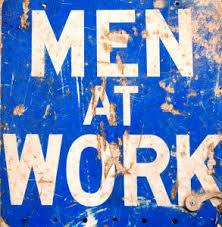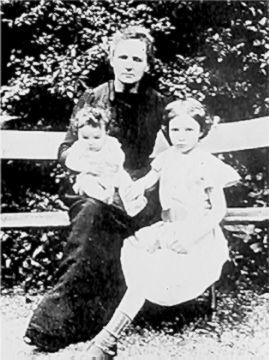 Why do some men support gender diversity in leadership while others REALLY DON’T? Catalyst asks this question through a new body of research evaluating men’s involvement with gender diversity in a report released today titled, Engaging Men In Gender Initiatives: What Change Agents Need To Know. The study tells us a lot about men’s advocacy for gender equality at work.
Why do some men support gender diversity in leadership while others REALLY DON’T? Catalyst asks this question through a new body of research evaluating men’s involvement with gender diversity in a report released today titled, Engaging Men In Gender Initiatives: What Change Agents Need To Know. The study tells us a lot about men’s advocacy for gender equality at work.
Straight from the release:
Bringing men into the conversation of diversity is in a company’s best interest and is paramount to creating equality in business leadership. “The preponderance of men in leadership means their efforts are necessary to advance change in the workplace,†said Ilene H. Lang, President & CEO of Catalyst. “Research continues to show that diversity well-managed yields more innovation and is tied to enhanced financial performance − factors good for all employees.â€
When asked about what keeps men from supporting gender initiatives, some men who were interviewed for the study pointed to a “zero-sum†mentality – a belief that gains for women necessarily mean losses for men. Companies may inadvertently encourage this line of thinking by instituting practices that increase competition between employees and put the focus on the individual first above the organization as a whole. A shift away from this “win or lose†mentality to a recognition that everybody benefits from gender equality can lead men to become greater advocates of change.
What are some characteristics that make men advocates for gender equality? The report finds that men who are seen as champions of diversity have a strong sense of fairness. Men who were committed to the ideal of fairness were found to have more personal concerns about issues of equality in general and were more aware of gender bias in the workplace and likely to take action.
Men identified as taking action on gender diversity indicated factors that may work as roadblocks to becoming champions of equality. These obstacles included two barriers to men’s engagement: fear of losing status or of being seen as part of the problem, and apathy – a sense that issues of gender do not concern men. Organizations can take steps to help remove these barriers and engage men in initiatives to promote gender equality by appealing to men’s sense of fairness, providing men with women mentors, exposing men to male leaders who champion inclusion, and inviting men into the discussion through male-only and male/female groups. In addition, research shows that men gain significant personal benefits such as better health, freedom to be themselves, and the ability to share financial responsibilities with a spouse or partner when working in a place free of gender bias.
Amen to all that, I say. You can download a pdf version of study here.
 Was Wall Street’s crash due, in part, to an overload of testosterone?
Was Wall Street’s crash due, in part, to an overload of testosterone?

 The one, the only Daphne Uviller (who coedited Only Child with me) had a great piece in yesterday’s City Section of the NYTimes — part of the series “Her Tales of the City”. Daph’s essay is a great lead in to her latest book, a novel called
The one, the only Daphne Uviller (who coedited Only Child with me) had a great piece in yesterday’s City Section of the NYTimes — part of the series “Her Tales of the City”. Daph’s essay is a great lead in to her latest book, a novel called  I’ll be teaching next at Woodhull’s
I’ll be teaching next at Woodhull’s This month Science Grrl looks at the mother-daughter bond in science & engineering.
This month Science Grrl looks at the mother-daughter bond in science & engineering. Why do some men support gender diversity in leadership while others REALLY DON’T? Catalyst asks this question through a new body of research evaluating men’s involvement with gender diversity in a report released today titled,
Why do some men support gender diversity in leadership while others REALLY DON’T? Catalyst asks this question through a new body of research evaluating men’s involvement with gender diversity in a report released today titled,  Slate’s new online magazine “written mostly by women, but not just for them,” Double X, is launched! Do check it out:
Slate’s new online magazine “written mostly by women, but not just for them,” Double X, is launched! Do check it out: